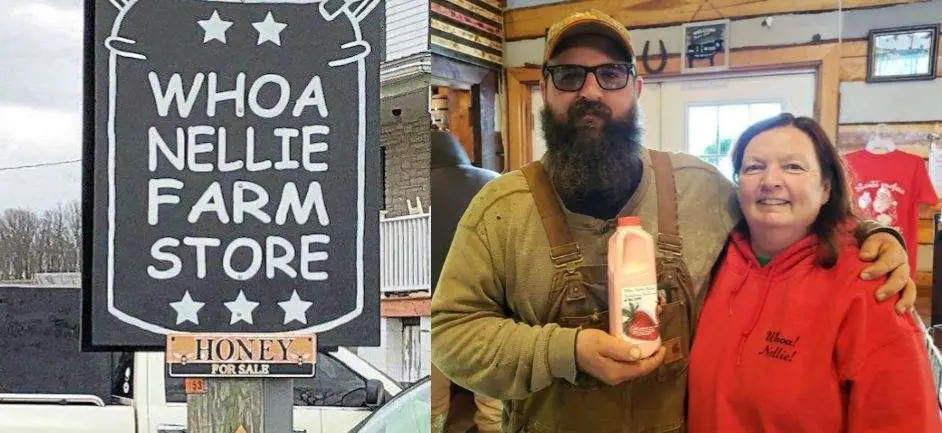Table of Contents
Dairy Farmer’s Inspirational story: The coronavirus has had a particularly hard economic impact on family farms, but one tiny farm has found an innovative solution to stay in business.
At a 300-year-old cream-line dairy farm, where a farmer is working around the clock to bottle his own milk after his processor told him to discard it, the American spirit continues on. Locals are rallying behind him.
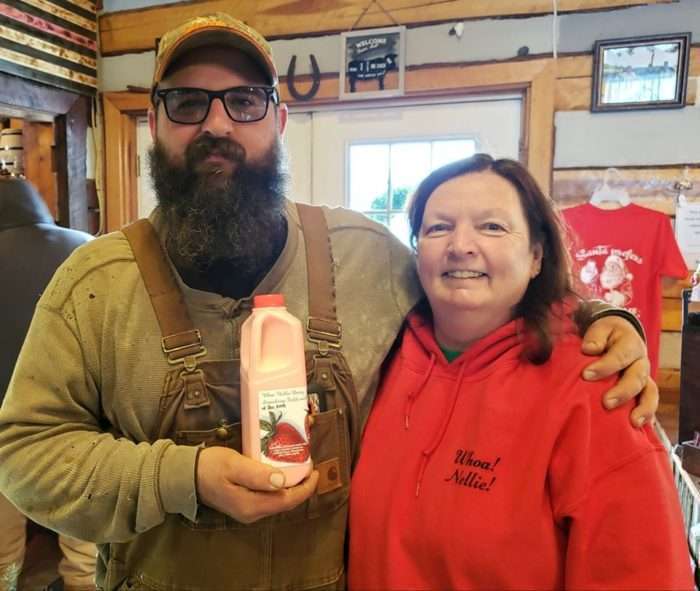
This Ben Brown’s Whoa Nellie Dairy farmer story
Dairy Farmer Ben Brown said he and Mary Beth bought the farm from Ben’s parents four years ago. He stated that the family is just scraping by, and that the news on Saturday was “difficult” to take and left him on edge.
“I don’t want us to perish.” “The Brown family has owned this land since the 1700s,” he added.
Dairy Farmer Ben Brown claimed he was nervous when he answered the phone from his wife one morning when he was working a 24-hour shift pasteurizing milk at the family’s dairy farm in Fayette County.
“The farm store wasn’t meant to open until 1 p.m., but Mary Beth called to inform me that customers were already lined up outside the entrance to buy our milk.” Brown remarked, “It was pretty beautiful.”
“I told her, ‘We should open the store right now,'” Brown explained.
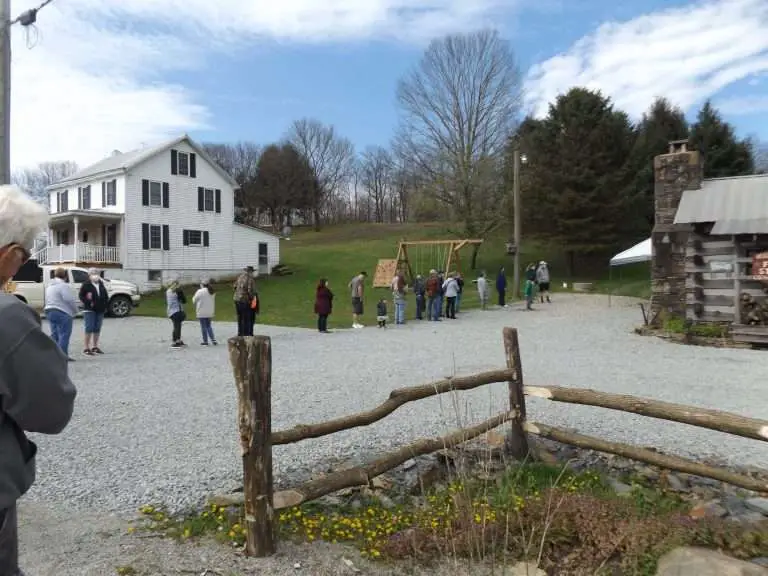
Dairy Farmer Brown said he was worried because the Whoa Nellie Dairy, which is located along Bear Rocks Road in Bullskin Township, just beyond the Westmoreland County line, had already been dealt a blow Saturday when its longtime milk buyer, Schneider Dairy in Pittsburgh’s South Hills, said it didn’t have the usual market this week to sell the milk produced on the Browns’ 500-acre dairy farm.
“We have 200 cows, with 70 of them producing milk right now.” Every other day, Schmied’s comes out and purchases anything we don’t sell in the farm store. Brown said, “Who knows what will happen because this is going on till Sunday.”
“We’re talking about 12 milkings that would have to be discarded.” Brown stated, “I just don’t want to do it.”
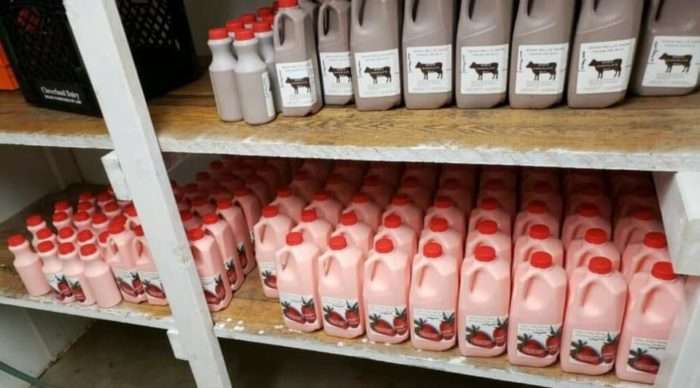
Schneider Dairy did not return phone calls on Tuesday.
Although they only have the machinery to pasteurize 30 gallons at a time, the Browns announced on social media that they planned to pasteurize milk around the clock, add store hours, and sell milk at the farm shop.
“I despise waste, and I don’t want to throw milk away.” People can use it, but I still have expenses to pay, ” Dairy Farmer Brown explained.
Fans in Fayette and Westmoreland counties shared the Browns’ statement on the Whoa Nellie Dairy Facebook page. At about noon Tuesday, cars and pickup trucks were parked ten deep on both sides of remote Bear Rocks Road.
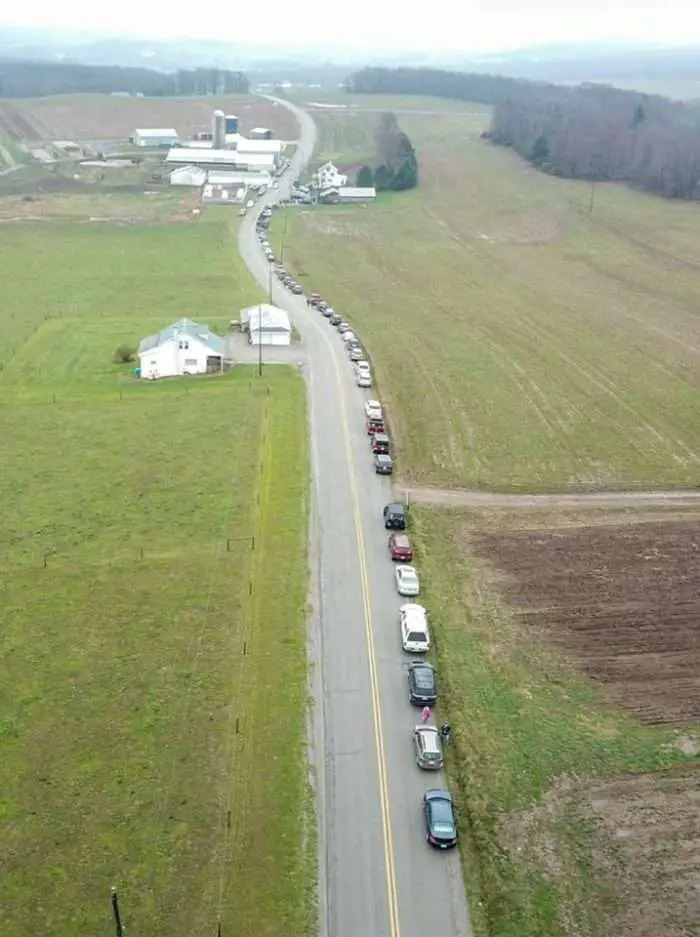
There were at least 20 people in a queue to get into the store. Customers kept a social distance of at least 6 feet between themselves when waiting to buy milk and other dairy products such as cheeses, cottage cheese, sour cream, maple syrup, and other items.
Linda and Tom Goodlin, who drove several miles from Scottdale, were among the customers. They were wearing safety masks as they stood in line in temperatures around 40 degrees.
“I know their uncle, Larry Basinger, and we’d like to assist the Brown family during this difficult time.” We’ll need ten gallons. “Our entire family has given me orders,” she explained.
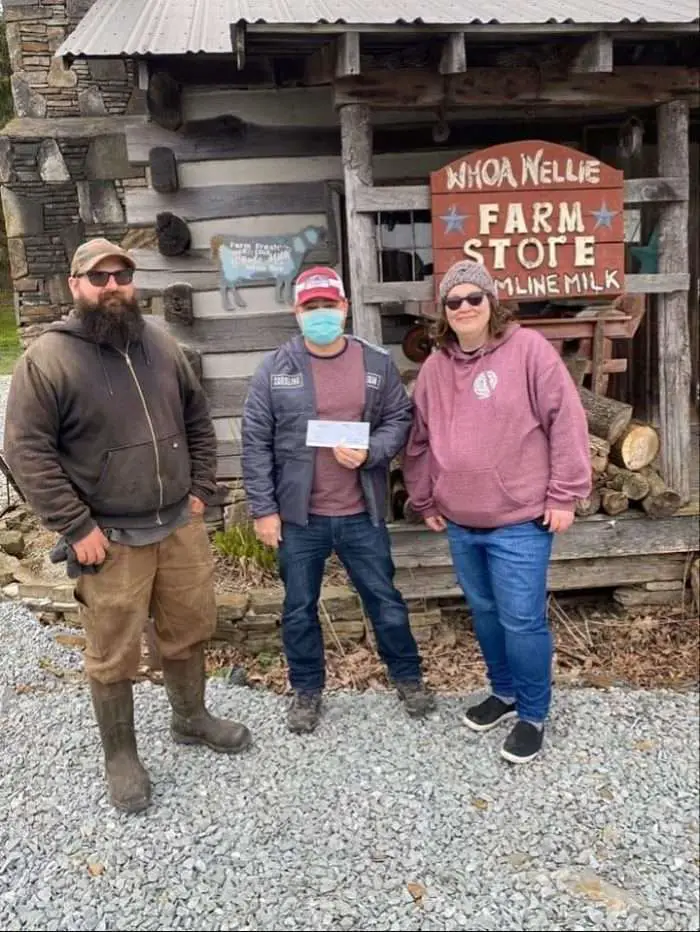
“Milk isn’t sold in restaurants.” Milk exports are on the decline. Powers stated that “universities and schools that provide milk in pints and half-pints are closed.”
She further said that farms and processing plants, as well as food banks and pantries, lack sufficient refrigerated storage for the milk they produce.
“First and foremost, there is plenty of milk available, and drinking milk is both safe and healthy,” she explained.
Dairy Farmer Brown was told that one of the primary issues was that certain grocery stores were limiting the number of gallons sold to individual consumers.
Brown stated, “Those sales constraints have got to cease.”
Last Monday, the Department of Agriculture intervened with key merchants, pressing them to raise quotas.
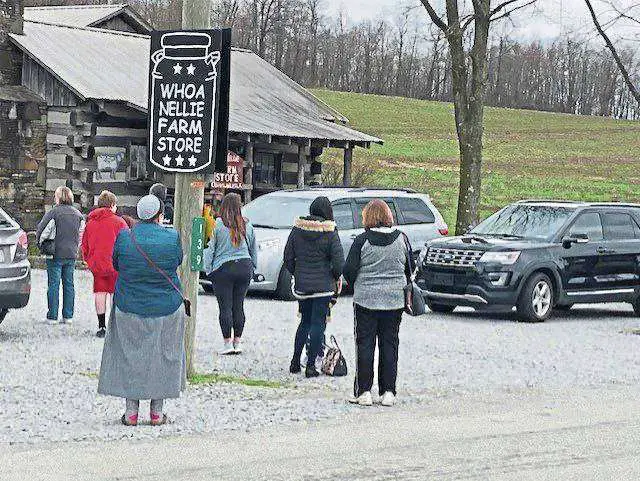
It also asked consumers to contact them if they saw a retailer restricting milk sales.
Brown, who had just finished a 24-hour shift pasteurizing and bottling milk, was unsure how many gallons he had made to sell.
“It’s in the hundreds of gallons, I can tell you.” “We’re also grateful that people are eager to assist us out,” Brown added, admiring the queue of customers waiting to buy milk outside his farm store.
Brown will no longer have to stay up all night processing the milk because a second 45-gallon pasteurization vat was acquired for the farm.
The store is open from noon to 6 p.m. at 139 Bear Rocks Road. Tuesdays and Wednesdays, 10 a.m. to 5 p.m.; Fridays and Saturdays, 10 a.m. to 5 p.m.
Do you Know About Holstein Cow? Read Holstein cow facts…
Have you ever stood in front of a dairy cow and wondered about the breed’s history? In this new series from Michigan State University Extension, the history of the seven primary breeds of dairy cows in the United States will be explored. Here we talk about Holstein cows.
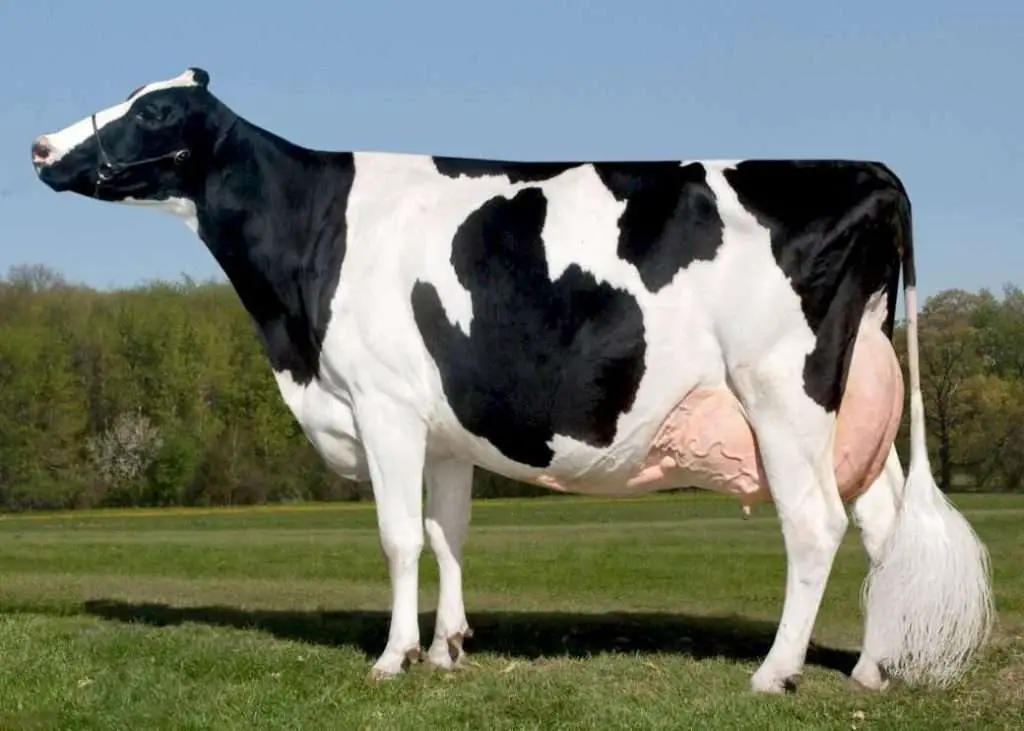
Holstein cows are the most well-known dairy cattle breed and the most widespread dairy breed in the United States. Their markings are either black and white or red and white. The red and white coloration is a recessive trait that shows up when both the dam (mother) and sire (father) are carriers or have the trait. The Holstein breed is noted for producing a lot of milk, but it contains less butterfat and protein in the milk than other breeds.
Holstein cows are thought to have originated in the Netherlands some 2,000 years ago. To develop a new breed of cattle, black animals from the Batavians (modern-day Germany) and white animals from the Friesians (modern-day Holland) were crossed. This crossbreeding resulted in a high-milk-producing animal that could survive on little nutrition. Originally known as Holstein-Friesians, this breed is now just known as Holsteins. Friesian cattle exist today, but they are distinct from Holstein cattle. Friesian cattle come from the United Kingdom, New Zealand, and Holland, and they are smaller in stature than Holstein cattle.
Winthrop Chenery of Massachusetts was the first to bring Holstein cattle to the United States in 1852. Dairy breeders looked to Holland for animals since there was a burgeoning market for milk and a need for cattle. Chenery bought the cow from a Dutch sailing master who had a Holstein on board to offer fresh milk to his crew. Chenery imported more cows in 1857, 1859, and 1861, impressed by the cow’s milk productivity, and other breeders soon followed suit, establishing lines of Holstein cattle in the United States.
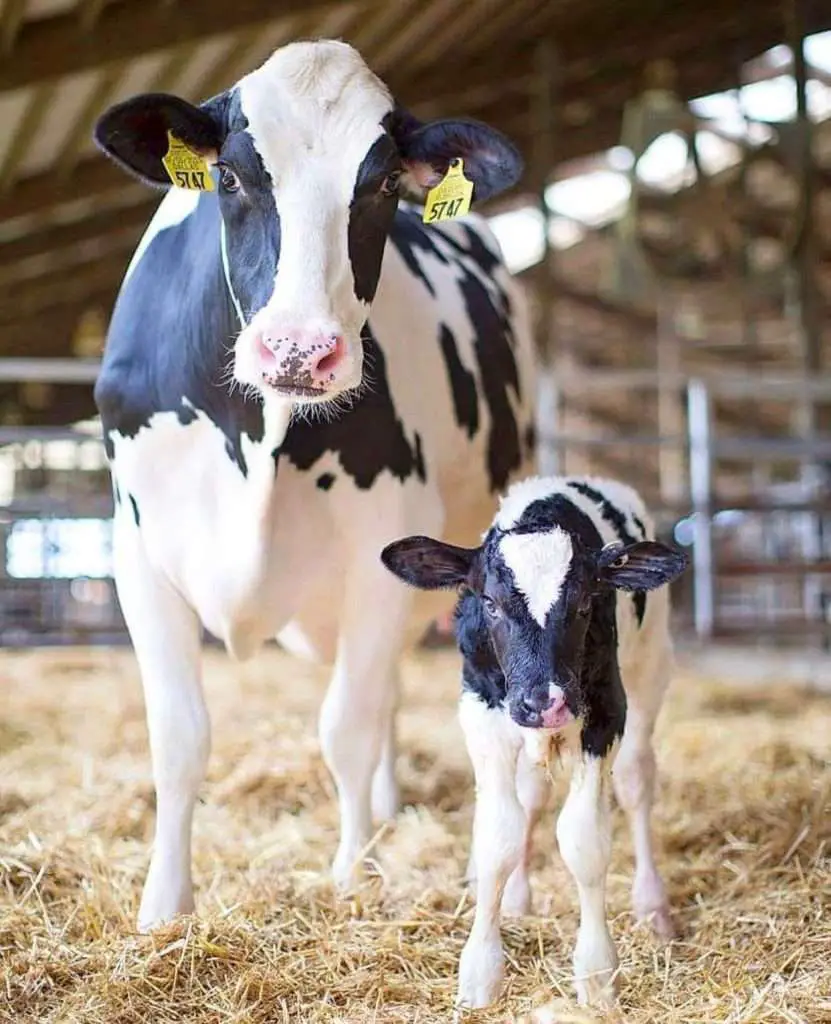
There were enough cattle and dairy producers interested in the breed near the end of the 1800s that the Holstein-Friesian Association of America was formed in 1885 to keep herdbooks and record pedigrees of cattle in the United States. The name of the organization was changed to Holstein Association USA, Inc. in 1994.
Interesting Holstein Cow Facts:
- A mature cow reaches 58 inches tall at the shoulder and weighs around 1,500 pounds.
- There are more than nine million dairy cows in the United States, with Holsteins accounting for nearly all of them.
- When Holstein calves are born, they weigh between 80 and 100 pounds.
- Holstein cows consistently win the most prizes for milk output. In each lactation, or milking cycle, the normal cow produces roughly 25,000 pounds of milk, or about 2,900 gallons. A lactation cycle takes around a year to complete.
Read More>>>
200 Nebraska Farmers Remained Silent, That Real Owner to Reclaim His Family Farm During The Auction
Actor Chris Salvatore Invited 89 Year Old Neighbor To Live With Him To Spend Her Last Days
84 Year Old Edith Macefield Refused Million Dollar Offer For Save Her House From Shopping Mall
